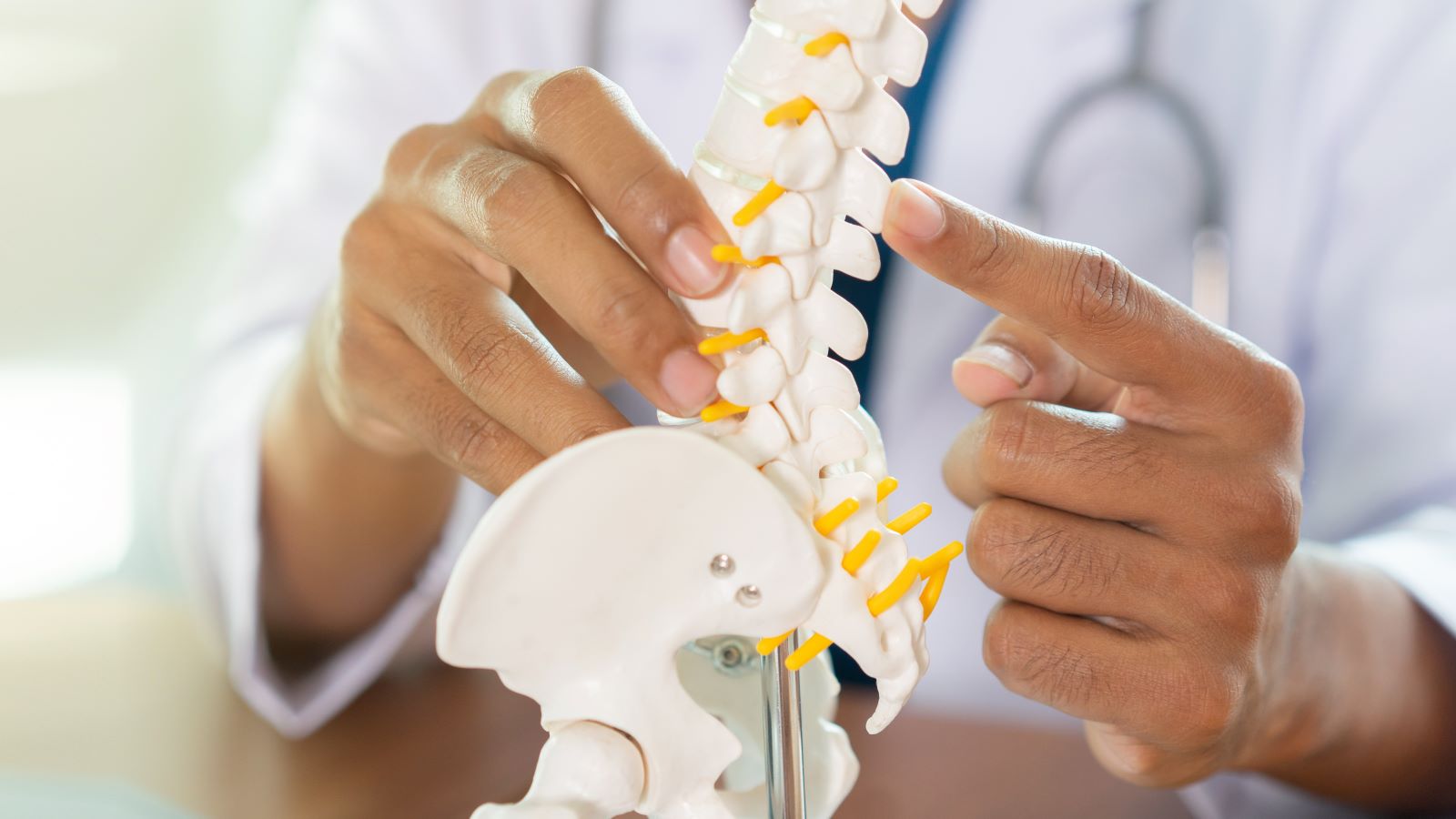<< Back
Is It Time for a Disc Replacement Surgery? Here’s How to Tell

January 31, 2024
Discs between vertebrae are the “shock absorbers” of the spine. And over time, those discs can be damaged – whether it’s from sports or just aging.
“Most patients see me for neck, mid- and low-back pain,” notes Cameron Kia, MD, a spine surgeon with the Hartford HealthCare Bone & Joint Institute in Hartford.
But, how do you know when that pain needs disc replacement surgery to fix? Dr. Kia explains.
Everyday activities can wear and tear on your discs.
As shock absorbers, discs are vulnerable to injury and suffer from the cumulative effect of everyday activities.
“The discs help share the load when stand and move in general,” Dr. Kia explains.
Discs are also damaged by:
- Traumatic injury
- Heavy lifting, causing them to herniate or bulge into the spinal canal and press on nerves.
- Early degenerative disc changes
- Arthritis, which can cause instability and pressure on the disc to herniate and cause arm or leg pain.
When discs are damaged, they can cause pain – and not just in your back.
“If there is nerve compression, the pain does radiate into the arms or legs,” he says. “I see a wide mix of patients with both acute or chronic pain who have exhausted non-operative management and start to have pain or weakness that severely limits them from their normal lives.”
Not everyone with a herniated disc needs surgery.
Most disc herniations can be treated without surgery, Dr. Kia stresses. That can involve six weeks of combined anti-inflammatory medication and physical therapy.
There are, however, signs you should see a spine surgeon for your pain. These include:
- Sudden muscle weakness
- Changes in balance
- Urinary problems
“Patients with such symptoms or who fail the six weeks of non-operative care may need surgery to remove herniated discs,” Dr. Kia says. “Removing a significant portion of the disc requires it be replaced, either with an artificial disc or by fusing adjacent vertebrae together.”
> Related: How to Know When Back Pain Requires Surgery
Good news – disc replacement surgery usually has good results.
For patients with no significant arthritis or instability, Dr. Kia says disc replacement can restore motion and decrease the chance the adjacent disc spaces will wear out.
“Results of disc replacement have been very positive, especially in reducing arm and neck pain. Patients may be limited in certain high-impact activity after, as each implant functions differently in the load it can take. But, most can expect a full recovery in six to 12 months, with excellent long-term data showing good results even at 10 years,” Dr. Kia says.